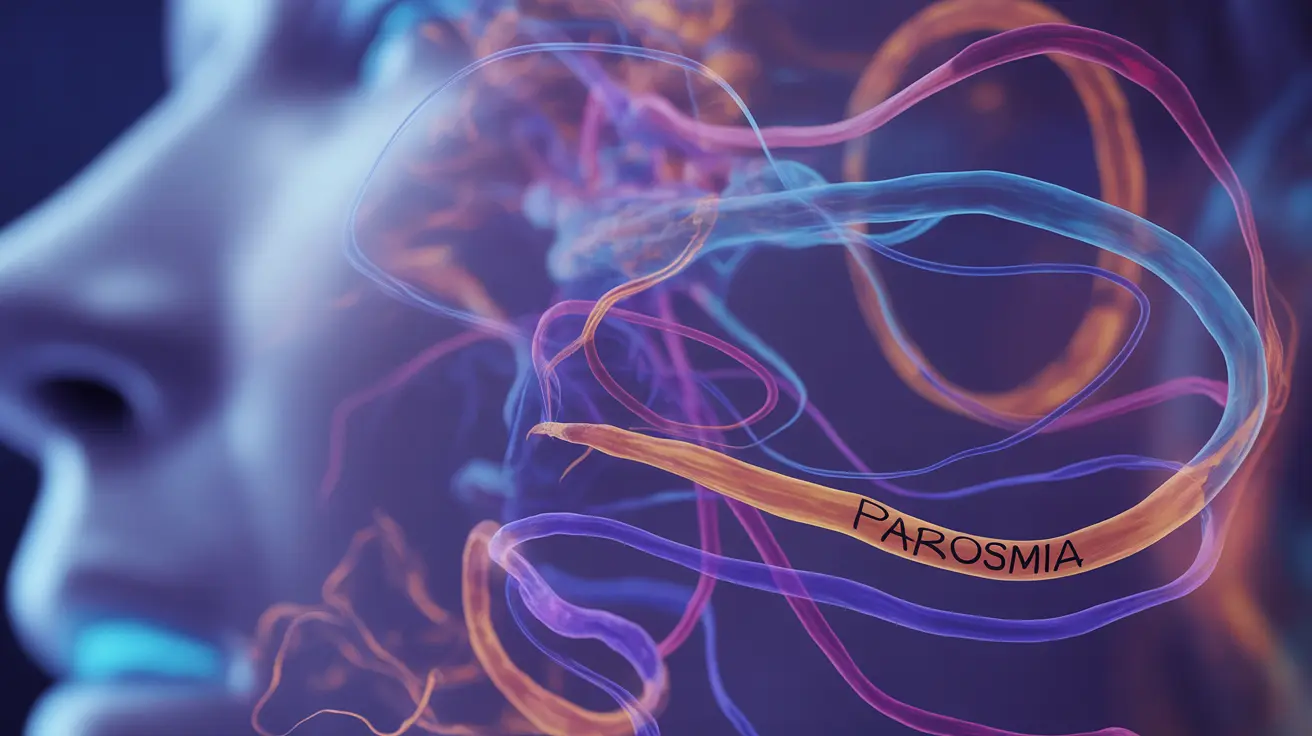Experiencing a metallic smell in your nose after COVID-19 can be concerning and frustrating. This unusual sensory change, known as parosmia, is a recognized post-COVID symptom that affects how your brain processes smell signals. Understanding this condition and its implications can help you better manage its impact on your daily life.
While the metallic smell sensation varies among individuals, it's important to note that it's typically temporary and often improves with time. Let's explore what causes this symptom, how long it might last, and what you can do about it.
Understanding Parosmia and Metallic Smell After COVID-19
Parosmia occurs when the olfactory system - responsible for your sense of smell - becomes damaged or altered. In COVID-19 cases, the virus can affect the olfactory neurons and their supporting cells, leading to distorted smell perceptions, including persistent metallic odors.
The metallic smell experience typically develops after initial COVID-19 infection, sometimes appearing weeks after other symptoms have resolved. This occurs as the olfactory system begins its healing process, but the neural pathways responsible for smell interpretation are still recovering.
Duration and Recovery Timeline
The length of time you might experience a metallic smell varies significantly from person to person. Some individuals may notice improvement within a few weeks, while others might experience symptoms for several months. Research suggests that most people see gradual improvement within 6-12 months post-infection.
Factors affecting recovery time can include:
- The severity of your initial COVID-19 infection
- Your overall health status
- Age and immune system function
- Previous history of smell disorders
Treatment Options and Management Strategies
While there's no instant cure for COVID-related parosmia, several approaches can help manage the condition and potentially speed up recovery:
Smell Training
Smell training therapy is a proven technique that involves regularly exposing yourself to different scents to help retrain your brain's smell processing. This method typically uses four distinct essential oils:
- Rose
- Lemon
- Clove
- Eucalyptus
Dietary Modifications
Since the metallic smell can affect taste perception, adjusting your diet may help make meals more enjoyable:
- Choose foods with stronger flavors
- Experiment with different temperatures
- Add herbs and spices to enhance taste
- Stay well-hydrated
Supportive Care
Additional supportive measures can include:
- Taking zinc supplements (under medical supervision)
- Maintaining good nasal hygiene
- Using saline nasal sprays
- Practicing stress reduction techniques
When to Seek Medical Help
While parosmia often resolves on its own, certain situations warrant medical attention:
- If symptoms persist beyond 12 months
- If the condition significantly impacts your nutrition or quality of life
- If you develop additional concerning symptoms
- If you have pre-existing medical conditions affecting your sense of smell
Frequently Asked Questions
What does a metallic smell in the nose after COVID-19 infection indicate? The metallic smell typically indicates parosmia, a distortion of smell perception that occurs when olfactory neurons are damaged and beginning to heal after COVID-19 infection.
How long can the altered metallic smell caused by parosmia last after COVID-19? The duration varies by individual, but most people experience improvement within 6-12 months. Some may recover sooner, while others might have symptoms for longer periods.
What treatments or remedies help reduce the metallic smell in the nose due to parosmia? Smell training therapy, dietary modifications, zinc supplementation (under medical guidance), and maintaining good nasal hygiene can help manage symptoms and potentially aid recovery.
Can the metallic smell in the nose from COVID-19-related parosmia affect taste and nutrition? Yes, parosmia can affect how foods taste, potentially impacting dietary choices and nutrition. Working with a healthcare provider or dietitian can help ensure proper nutrition during recovery.
When should I see a doctor if I continue to have a persistent metallic smell in my nose? Consult a healthcare provider if symptoms persist beyond 12 months, significantly impact your quality of life, or if you develop additional concerning symptoms.




